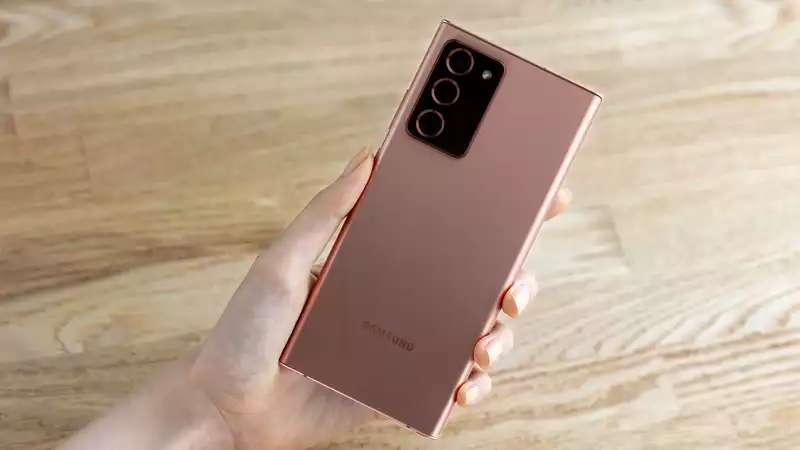In the competitive smartphone market, one way to stand out from the crowd of rival devices is big numbers. And there is no bigger number than the 600MP camera said to be under development at Samsung.
While the rumored camera certainly sounds impressive, taking the resolution to such an extreme won't help Samsung's camera catch up with rivals like Apple and Google.
Earlier this year we had heard rumors that Samsung was developing a 600MP camera sensor. At the time, however, there was no real evidence that the camera existed, so we had to take the leaker's word for it.
Now things have changed. Taking to Twitter once again, Ice Universe posted a slide from inside Samsung detailing the 600MP camera lens. More importantly, the slide features the camera on the back of the smartphone, suggesting that Samsung has grand plans to seriously increase the resolution of future Galaxy smartphones.
As the slide shows, this tremendously large sensor is designed to magnify 4K and 8K video without compromising image quality. This is exactly how high resolution works. High resolution does not do anything about image quality, it just means that you can zoom in further without blurring or pixelating the image.
While there are advantages to being able to capture larger images, resolution alone does not automatically produce better images. First, higher resolution means larger file sizes, which can be a problem if not properly compressed. It also ignores the importance of other camera features, especially computational photography, which both Google and Apple have had great success with. [Google's Pixel phones in particular have long supported this, and Google even decided that its own camera processing software was so good that the Pixel 3 did not need to follow the multi-lens camera trend. Google eventually included a second lens in the Pixel 4 and Pixel 5, but the focus on computational photography and post-snap processing remains strong in these models.
Similarly, Apple's Deep Fusion image processing, which debuted on the iPhone 11, can process images automatically, improving detail and overall quality after the shutter button is pressed.
We are also hearing rumors about the camera planned for next year's iPhone 13, which may feature a larger sensor. This means more light will enter the camera and larger pixels will improve the quality of the final image. High resolution may be great for zooming in, but having to use smaller pixels to do so means that the unzoomed image will not look as good.
Of course, Samsung's 600MP lens is not going to be in smartphones anytime soon. It is reportedly 22 mm thick, which is 2.5 times thicker than the 8.8 mm Samsung Galaxy S20 Ultra. Second, Samsung also manufactures products other than cell phones, and this technology could be applied in other industries before it is considered for inclusion in commercial cell phones.
However, the proposal to add megapixels to the camera suggests a larger problem at Samsung. The handset maker already offers higher resolution than any other smartphone camera with its 108MP main lens on the Galaxy S20 Ultra and Note 20 Ultra. However, Samsung has bigger goals in mind, and there are rumors that 150MP and 180MP lenses are getting ready to be included in Samsung smartphones.
For Samsung, it would be better to shift its focus to other ways to improve smartphone cameras. No one can deny that the company has leapfrogged rival phone makers in terms of resolution, but as we have seen many times over the years, resolution is not everything. That puts the Galaxy Note 20 Ultra fourth on the list of best camera phones, behind the iPhone 12 Pro Max, Pixel 5, and iPhone 12.
The 600MP camera is already in development, so even if we don't know which handset will feature it, that won't stop it from appearing one day. However, that doesn't mean that Samsung can't delay the development field related to smartphones. Competitors who are focused on similar resolution may start to catch up, but given Samsung's extraordinary lead, they can certainly afford to take the time to focus on other things - such as computational photography.
If Samsung does not, it risks falling further behind. . because no resolution in the world can match a more balanced camera.
.









Comments